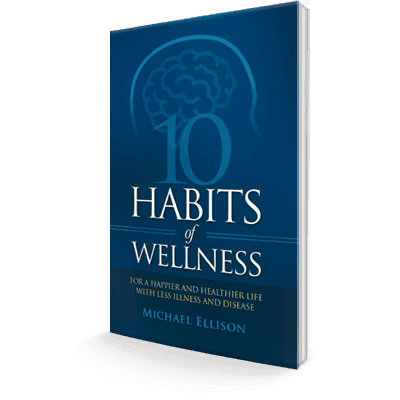
Written by Dr. Paul Bernitt, Board-Certified Director of Wellness
Have you ever wondered why your body feels heavy or sluggish? You’re not alone.
Lots of people feel this way all the time, which can make it hard to do things they enjoy. They struggle to find energy and motivation for daily activities. If you’re one of these people, it is important to understand why, so you can find ways to feel better and have more energy.
Let’s explore self-care opportunities to enhance sleep and revitalize a HEALTHIER YOU.
Common Causes of Heaviness
- Poor Diet
Your diet plays a significant role in how you feel. Consuming foods high in sugar, unhealthy fats and processed ingredients can lead to weight gain and a sense of heaviness. These foods often lack essential nutrients, leaving your body deprived of what it needs to function optimally. A diet rich in fruits, vegetables, lean proteins and whole grains can help you feel lighter and more energized.
- Dehydration
Water is essential for maintaining bodily functions, including digestion, circulation and regulating body temperature. When you’re dehydrated, your body struggles to perform these tasks efficiently, leading to a sense of fatigue and heaviness. Aim to drink at least eight glasses of water daily to keep your body hydrated and functioning at its best.
- Lack of Exercise
Regular physical activity is crucial for maintaining a healthy weight and boosting energy levels. A sedentary lifestyle can lead to muscle weakness, weight gain and a general feeling of sluggishness. Integrating physical activity into your everyday schedule, even in small amounts, can have a substantial impact. Begin with physical activity you find enjoyable, such as walking, swimming or stretching.
- Sleep Deprivation
Not getting enough sleep can have a profound impact on your overall well-being. During sleep is when your body repairs and recovers, and without sufficient rest, you may feel tired and heavy. Aim for seven to nine hours of quality sleep each night to ensure your body has the time it needs to recover and rejuvenate.
- Stress
Chronic stress can take a toll on your body, leading to fatigue and a feeling of heaviness. When stress occurs, your body releases cortisol, a hormone that can cause weight gain and disrupt your sleep patterns. To reduce stress on your body, try techniques like prayer, personal reflection and deep breathing.
- Medical Conditions
Certain medical conditions, such as hypothyroidism (underactive thyroid), depression and chronic fatigue syndrome, can cause feelings of heaviness and tiredness. If you have made changes to your lifestyle but still feel heavy, it’s a good idea to see a healthcare professional. They can check for any medical conditions that could be causing your symptoms.
Addressing any underlying health concerns is important to improve your overall well-being. If you feel heavy despite trying to be positive, don’t be afraid to ask for help. Your healthcare provider can offer guidance and support to help you feel better.
Strategies to Combat Heaviness
- Stay Hydrated
Drinking enough water is essential for maintaining your energy levels and preventing that heavy feeling. If you find it challenging to drink plain water, try infusing it with fruits like lemon, cucumber or berries for added flavor. Herbal teas and coconut water are also excellent hydrating options.
- Exercise Regularly
Regular physical activity can significantly reduce feelings of heaviness. Exercise helps improve circulation, increase muscle strength and boost your mood by triggering the release of endorphins. Start with activities you enjoy, and gradually increase the intensity and duration as your fitness improves. Aim for at least 30 minutes of moderate exercise most days of the week.
- Improve Sleep Quality
It’s crucial to secure sufficient high-quality sleep to feel rejuvenated and lively. Establish a steady sleep schedule by consistently going to bed and waking up at exactly the same time each day.
Create a relaxing bedtime routine, such as reading a book or taking a bath. This will signal to your body that it is time to unwind and get ready for sleep. Make your sleep environment conducive to rest by keeping it cool, dark and quiet.
- Manage Stress
Finding effective ways to manage stress can significantly reduce feelings of heaviness. Personal reflection and mindfulness practices can help calm your mind and reduce cortisol levels. Deep breathing exercises, progressive muscle relaxation and stretching are also excellent ways to relieve stress and promote relaxation. Spending time in nature, engaging in hobbies and connecting with loved ones can also provide a much-needed mental break.
- Identifying Medical Conditions
If lifestyle changes don’t help, see a doctor regarding your heaviness. It is important to seek medical advice if symptoms persist. During a thorough evaluation, they can check for any medical conditions that might be causing your symptoms. Conditions such as an overactive thyroid, depression and chronic fatigue syndrome require medical treatment and management.
Your Daily Energy Ally: Adaptuit®
If you’ve been doing “all the right things” but still feel heavy and worn out, it may be time to give your body the extra support it’s asking for, with TriVita’s Adaptuit.

Here’s what makes Adaptuit so effective:
- Rhodiola Rosea
Often called “arctic root,” rhodiola has been used for centuries to fight fatigue and boost mental performance. It helps improve stamina, balance cortisol (your stress hormone) and support a calm mind even in high-pressure situations.
- Eleuthero (Siberian Ginseng)
Known for boosting endurance and resilience, eleuthero helps the body cope with daily stressors and enhances physical recovery. It’s particularly helpful when you feel mentally drained or physically sluggish.
- Schisandra Berry
This adaptogen supports liver health, improves focus and promotes emotional balance. Schisandra is known for its ability to increase energy without overstimulation—making it ideal for anyone who wants a clear-headed calm rather than a jittery buzz.
- L-Theanine
A natural amino acid found in green tea, L-theanine promotes relaxation without drowsiness. It helps you stay focused and emotionally steady, especially during moments of stress or decision fatigue.
Together, these adaptogenic and amino acid ingredients form a powerful, non-drowsy blend that supports:
- Calm focus and emotional stability
- Adrenal balance and reduced fatigue
- Physical stamina and quicker recovery
- A more peaceful, energized start to each day
And because it’s a liquid, Adaptuit is easy to take and quickly absorbed—perfectly formulated for busy mornings or midday pick-me-ups when your body needs calm, focus and steady energy.
Conclusion
Feeling tired and slow can impact your life. Figuring out the reasons and making healthy changes can boost your energy levels, helping you feel more alive and energetic.
To feel lighter and more energized, eat well, drink water, exercise, get better sleep and reduce stress. In addition, take three ounces of Adaptuit in the morning and again in the afternoon to restore a sense of calm, focus and improved energy. These habits can help combat feelings of heaviness. Remember, if lifestyle changes aren’t enough, seeking medical advice is crucial in addressing any underlying health issues.
Embrace these strategies, listen to your body and take proactive steps toward a healthier, more vibrant you.
About Paul Bernitt, DHH
Paul Bernitt is a Board-Certified Doctor of Holistic Health and the Director of Wellness Services. He is a passionate advocate for helping others experience greater physical, emotional and spiritual wellness. Read more from Dr. Paul on TriVita’s Healthy You blog







